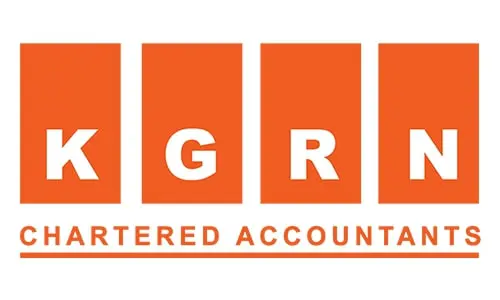What to Do to Get Started An Offshore Company is a step-by-step guide that will aid any new offshore player or start-up in reducing time and money spent on the formation of their company. Continue reading if you can!
Despite the fact that entrepreneurs are all too familiar with the phrase “offshore company,” their worries about offshore operations are often on their minds.
In recent years, a rising number of businesses have relocated their activities to offshore countries for a variety of reasons, including as tax reductions, asset protection, and confidentiality. Several common names, such as the British Virgin Islands (BVI), Belize, Hong Kong, and others, are becoming more popular for this purpose.
Some individuals believe that forming an offshore corporation is a trivial process. Some, on the other hand, have provided comment on the procedural requirements as well as the complex approach with which they must contend. According to the Korea Global Research Network, customers did not get enough information on the specific establishment of offshore firms in a number of instances. As a new offshore player or start-up, we will take you step by step through the process of establishing an offshore business.
Don’t Overlook 3 Crucial Phases During the Planning Stage of the Project.
The majority of the time, excellent preparation produces favourable outcomes! The following are the three most important actions to take before creating your offshore corporation:
It is vital to have a thorough awareness of the obstacles faced by an offshore organisation. Afterwards, it could be able to aid you in lowering the probability of making a mistake. A similar response to queries such as “how do offshore enterprises operate?” or “which offshore countries should you prioritise in terms of business demand” would be very beneficial.
A reliable offshore service provider is a simple and cost-effective solution for the vast majority of new businesses looking to expand their operations. If I may be more specific, your offshore company will be registered and incorporated when the service provider has obtained all of the necessary documentation and information. Furthermore, this organisation will be prepared to assist you with administrative chores when you have been formally established. A few examples of post-incorporation responsibilities include renewals, financial reports, and yearly tax returns, to name a few.
Please bear in mind that not all offshore service providers will be suited for your specific needs and requirements. Certain parameters must be taken into consideration, the most important of which are as follows:
- The company’s experience and business history are important.
- The company’s physical location may be found here.
- The number of jurisdictions in which the corporation is permitted to conduct its operations (if you choose universal providers)
- The amount of money that the firm charges for its services.
- The company’s customer service is excellent.
- Particularly important is the company’s reputation.
Last but not least, you should be well prepared for any payments that may be required throughout your early stage. Following your selection of your perfect offshore company formation partner, you will be able to calculate the exact amount you will be required to pay for your basic incorporation. A typical expense would include fees for the certificate of incorporation, the register of directors, and the filing of necessary documents. Having said that, you should be aware that there may be extra expenses that you should be aware of in advance. It is possible to get additional money as a result of the following activities:
- The process of opening a bank account
- registration of a corporate seal
- Renting corporate office space is a common practise.
- This is in addition to any other services that may be required, such as an apostille or a virtual office.
- Do you want to launch a company in an offshore location? This pamphlet will provide you with all of the information you need to know before travelling abroad:
- This guide will walk you through the process of forming an offshore corporation.
Organizational Structure: IBC, LLC, or Pte Ltd – Which of the following alternatives should I pick from the list below?
Choosing an appropriate offshore business structure is the next step to take.
The word “offshore company” refers to a wide variety of different types of organisations. The offshore service provider may recommend the kind of offshore company that is most appropriate for you based on the jurisdiction you’ve chosen, the flexibility of the business structure you wish, and other variables.
Businesses wishing to relocate their operations to a foreign country often choose one of three offshore company structures. Their names are as follows:
The most important characteristics of an International Business Company (IBC/BC) are as follows:
- Allow participation in foreign commercial activities, such as trade and investment, if the circumstances warrant it.
- If the IBC does not do business inside the jurisdiction in which it was formed, it may be eligible for a reduced tax rate (or be excluded from local corporate tax).
- Allow for the quick incorporation of new technologies
- Confidentiality in banking and business transactions
- Reduce the amount of reporting required.
- It is important to have a minimum of one director and one shareholder (both can be the same person)
- In addition to Belize and the British Virgin Islands, the Seychelles, the Marshall Islands, and the United Arab Emirates are also offshore jurisdictions to take into consideration.
Here’s an illustration to assist you better grasp what this kind is all about: The International Business Company of the Seychelles: A Guide to Doing Business in the Islands (IBC)
- The fundamental characteristics of a Limited Liability Company (LLC)
- Incorporate or form a partnership that is a hybrid of a corporation.
- It is not necessary to report assets or revenue obtained outside the jurisdiction of incorporation in order to avoid paying local company taxes.
- Ensure that all members of the company are protected to a significant extent. Members are not individually accountable for any of the company’s obligations or commitments, and they are not required to do so.
- Instead of shareholders and directors, only members are allowed to participate.
- Reduce the amount of reporting required.
- It is important to have a bare minimum of one member.
- There are a number of offshore jurisdictions to consider, including Belize, the Cook Islands, Nevis, and St. Vincent and the Grenadines.
- A Belize Limited Liability Company (LLC) is a good illustration of this. Take a look at it!
- The Fundamental Characteristics of a Private Limited Company (Pte Ltd)
- Have fewer than 50 investors and operate as a kind of privately owned company.
- Investors should be held to the lowest level of responsibility feasible.
- It has the authority to engage into contracts, acquire assets, sue or be sued, and bring or defend legal actions in its own name.
- Use low tax rates and tax exemptions on money produced outside of the United States to your advantage.
- For shareholders to openly swap their shares should be a violation of the law.
- IBCs are subject to stricter reporting requirements than other types of containers.
Select a Suitable Offshore Jurisdiction for Your Needs.
A significant influence on the pros and drawbacks of incorporating your firm in an offshore location may be found in the location’s taxation laws. When making a choice, it is important to consider a variety of aspects.
Most essential, the offshore company jurisdiction chosen should be a well-tailored choice that suits the specific requirements of your corporation. Consider the following scenario: If an entrepreneur seeks to incorporate their company in a reputable location with a pro-business environment for foreigners, he or she is likely to start with Singapore or Hong Kong.
The reputation of an offshore jurisdiction may also be a sign of its soundness and stability, which may contribute to a sense of trust and the prospect of expanding a company’s operations. When determining which nation is best for your company, take into account factors such as the economics, politics, legal system, and even the availability of corporate structures.
Whatever your feelings about EU markets are, before you start compiling your list, double-check to see whether your favourite site is on the EU Council’s non-cooperative list of countries. If your firm intends to trade or develop into the EU market in the near future, this is a vital consideration to consider.
Be prepared to discover that your nation of residence is prohibiting you from founding an offshore corporation or a limited liability company. Some nations may be designated as ineligible for the creation of corporations. As a result, the location of your residence is a crucial issue to consider.
Another element to consider is the capacity of the government to assist businesses in minimising their tax burden. The vast majority of offshore corporate jurisdictions levie little or no tax on foreign-sourced revenues, allowing them to reduce the tax burden they would otherwise face in high-tax nations. Keep in mind, however, that knowing tax law is essential since each country may impose a distinct tax system on your offshore firm, making knowledge of tax legislation essential.
The Procedure for Forming an Offshore Corporation
The stages involved in founding an offshore company may be divided into the following categories:
Choose a Name for your Firm.
Certain naming standards must be met in order for the competent authority, generally known as the Company Registry, to provide approval for your company’s name registration. The following fundamental characteristics should be met by a business name that is acceptable for an offshore corporation in particular:
- Company names registered with the Company Registry must be different and not identical or confusingly similar to any other current or previously registered company names with the Company Registry.
- In the name, there should be no unlawful or prohibited words or expressions. Banks, assurance companies, insurance companies, royal institutions, universities, trusts, building societies, cooperatives, foundations, casinos, funds, securities, pharmacies, and so on are examples.
- In order to comply with the corporate requirements of the chosen offshore countries, a limited liability company’s name must typically end with suffixes such as “Limited”, “LTD.”, “Corporation”, “Corp.”, “Incorporated”, “Inc.”, “LLC,” “Société Anonyme”, “S.A.”, “Gmb,” “Namloze Vennootschap,” “Berhad,” and so on.
- In order to save time and prevent errors, it is always required to do a business name search and check the availability of the desired name before proceeding.
Useful Link: 5 Tips to choose a Company Name for a Business
Comply with the Know-Your-Customer requirements
Most banks are required to do due diligence before admitting new clients in order to prevent the unlawful use of offshore financial services by their customers and employees.
Note that the documentation needed to establish an offshore company may differ from one country to the next. Generally, however, the following basic papers for client verification are needed to be supplied in the majority of instances:
The following are the most important papers for meeting your due diligence responsibilities:
- a certified copy of one of your official identity papers, such as your driver’s licence
- It is necessary that all of your papers be originals or certified copies in order to have your residence address verified.
- Complete description of your organization’s activities.
- The following papers must be produced if one of the shareholders in your offshore firm is a legal entity, as well:
- It is necessary to have a certified copy of the incorporation certificate, or something comparable, on hand.
- Authenticated copy of the Memorandum of Association
- Certified copies of the Directors’ and Members’ Registers are available upon request.
- To complete the process, submit the relevant paperwork to the Company Registry.
- Then, after you’ve finished and submitted all of the appropriate paperwork, you may continue to register your firm with the Business Registry of the offshore location of your choosing.
KGRN is the Right Business Partner for You to Work With!
We hope you find this website to be a helpful resource in your efforts to establish an offshore corporation.
It is quite simple and uncomplicated to set up an offshore company, provided that you are well educated about the steps that must be taken before moving and the steps that must be taken throughout the incorporation process. In addition, hiring an offshore service provider is a sensible investment of both your time and money!
KGRN will often handle everything for you rather than having you go through the process step by step. In order to identify your case, you must first consult with our expert, after which you must compile the papers indicated above and submit them to us through email. We then transmit your papers to the compliance department at the offshore site where you want to register, as well as to the Company Registry at the same location.
Online offshore company formation services may be the most convenient option for you since you may have your offshore company up and running in as little as a few business working days after completing the process. Would you mind getting in contact with us regarding your preferred offshore firm?







